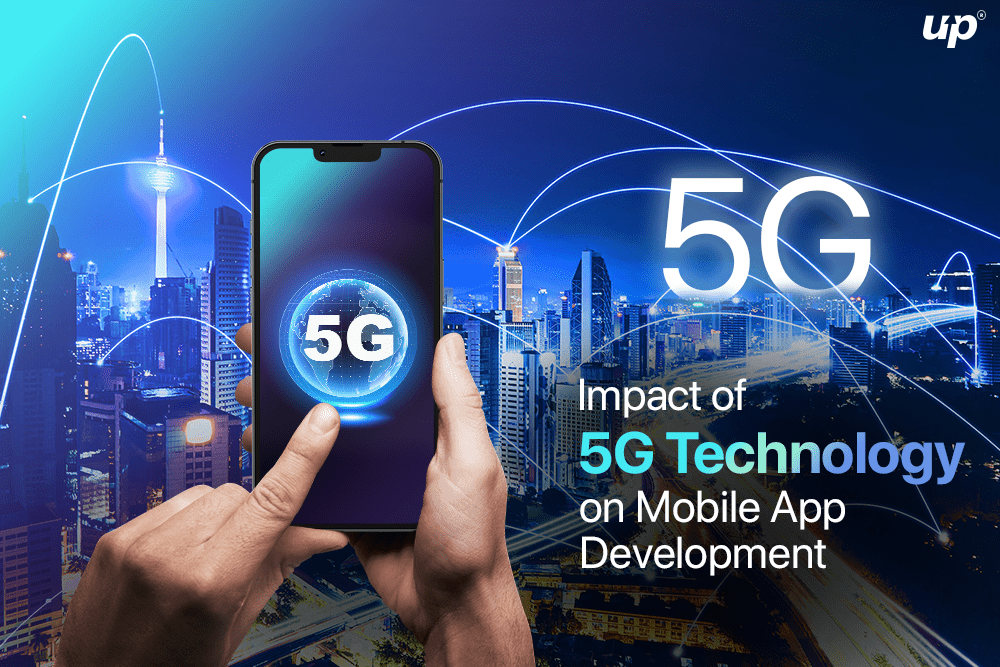In the ever-evolving landscape of technology, innovations like 5G have the power to reshape industries and redefine user experiences. As we stand on the brink of the 5G era, the potential impact of this transformative wireless technology on 5G mobile app development cannot be overstated. From blazing-fast speeds to enhanced capabilities, 5G promises to unlock a new realm of possibilities for app developers and users alike.
Understanding the Power of 5G
Before delving into its impact on 5G mobile app development, let’s first unravel the essence of 5G technology. 5G, or the fifth generation of wireless technology, represents a significant leap forward in connectivity compared to its predecessors. With speeds potentially reaching up to 100 times faster than 4G, 5G networks promise lightning-fast data transfer rates, virtually zero latency, and massive network capacity.
But 5G is not merely about speed; it’s about unlocking new use cases and enabling innovative applications that were previously impractical or impossible. From augmented reality (AR) and virtual reality (VR) to Internet of Things (IoT) devices and autonomous vehicles, 5G lays the foundation for a hyper-connected world where virtually every aspect of our lives is touched by seamless, high-speed connectivity.
The 5G Revolution: A Game Changer for App Developers
5G stands as the fifth generation of mobile network technology, succeeding 4G LTE. It brings with it unprecedented data speeds, lower latency, and more reliable connections. For app developers, this opens a new world of possibilities.
Opportunities Unleashed by 5G
Improved User Experiences: Without sacrificing performance, 5G’s speed and efficiency allow for the addition of more intricate and engaging software features. Apps will perform more fluidly, quickly, and responsively as a result—even while managing intricate features and high-definition multimedia.
Innovation in AR and VR: For AR and VR applications to work properly, they need a lot of bandwidth and minimal latency. Fluper can include these features easily in 5G mobile apps, resulting in more engaging and dynamic user experiences.
Integration of IoT: 5G is expected to have a significant positive impact on the Internet of Things. Smarter homes, communities, and industries will result from developers being able to design apps that interact with a wide range of IoT devices more effectively thanks to the improved connectivity.
Redefining Streaming Services: 5G will greatly enhance streaming applications. Greater bandwidth makes mobile devices more powerful platforms for streaming services by enabling buffer-free, high-quality content streaming.
The app development at Fluper adjusts as 5G wireless technology spreads throughout the world to fully capitalize on its advantages and minimize its drawbacks. This calls for changes in both our conceptualization and usage of 5G mobile applications, in addition to technical ones.
The Impact on Mobile App Development
Now, let’s explore how the advent of 5G technology is poised to revolutionize the landscape of 5G mobile app development:
1. Enhanced Performance and User Experience:
With 5G’s lightning-fast speeds and ultra-low latency, mobile apps can deliver smoother, more responsive experiences than ever before. Whether it’s streaming high-definition video without buffering, gaming with real-time multiplayer capabilities, or accessing cloud-based services with minimal delay, 5G opens up a world of possibilities for developers to create richer, more immersive experiences for users.
2. Augmented Reality (AR) and Virtual Reality (VR):
AR and VR technologies have long been touted as the future of mobile computing, but their widespread adoption has been hindered by the limitations of existing network infrastructure. With 5G, however, the barriers are lifted, allowing developers to create AR and VR applications that harness the full potential of this immersive wireless technology. From interactive shopping experiences to virtual tours and training simulations, 5G-enabled AR and VR apps have the power to revolutionize industries across the board.
Read more about the global impact of 5G: UAE & China lead globally in 5G technology adoption
3. Internet of Things (IoT) Integration:
The proliferation of IoT devices has ushered in a new era of interconnectedness, with everything from smart homes and wearables to industrial sensors and autonomous machinery generating vast amounts of data. 5G’s high-speed, low-latency connectivity is the missing piece of the puzzle, enabling seamless communication and coordination between disparate IoT devices. Mobile apps play a crucial role in this ecosystem, serving as the interface through which users interact with and control their IoT devices.
4. Real-time Collaboration and Communication:
Whether it’s video conferencing, collaborative document editing, or multiplayer gaming, real-time communication and collaboration are central to many mobile applications. With 5G’s ultra-low latency and high bandwidth, developers can create apps that enable seamless, lag-free interactions between users, regardless of their location or the complexity of the task at hand. This opens up new opportunities for remote work, virtual events, and social networking experiences that rival face-to-face interactions.
5. Edge Computing and Cloud Services:
While cloud computing has revolutionized the way we store and process data, latency-sensitive applications have often been hampered by the distance between the user and the cloud server. With 5G’s support for edge computing, however, developers can offload processing tasks to edge servers located closer to the user, reducing latency and improving responsiveness. This enables a wide range of latency-sensitive applications, from real-time analytics and gaming to autonomous vehicles and remote medical procedures.
6. Security and Privacy Challenges:
With the increased speed and connectivity that 5G brings, there are also heightened concerns around security and privacy. Mobile app developers must remain vigilant in safeguarding user data and securing their applications against emerging threats. Additionally, as 5G enables the proliferation of IoT devices and edge computing, new security challenges arise, requiring innovative solutions to protect sensitive information and ensure the integrity of the network.
The 5G era offers companies and app developers a chance to innovate and give people experiences that were previously thought to be unattainable. With the promise of 5G opening the door for a new era in mobile network technology, this is an exciting time.
Conclusion
The impact of 5G mobile network technology on 5G mobile app development is nothing short of revolutionary. From enhanced performance and immersive experiences to new use cases and business opportunities, Fluper has the potential to reshape the way users interact with mobile applications and the world around them. As developers embrace this new era of connectivity, the possibilities are truly limitless, paving the way for a future where innovation knows no bounds.












